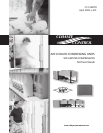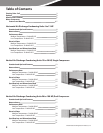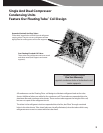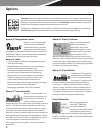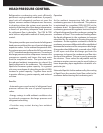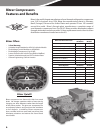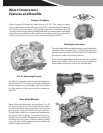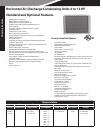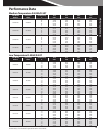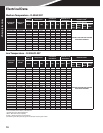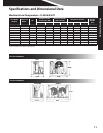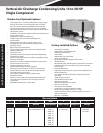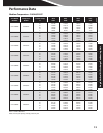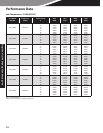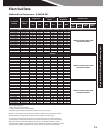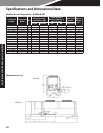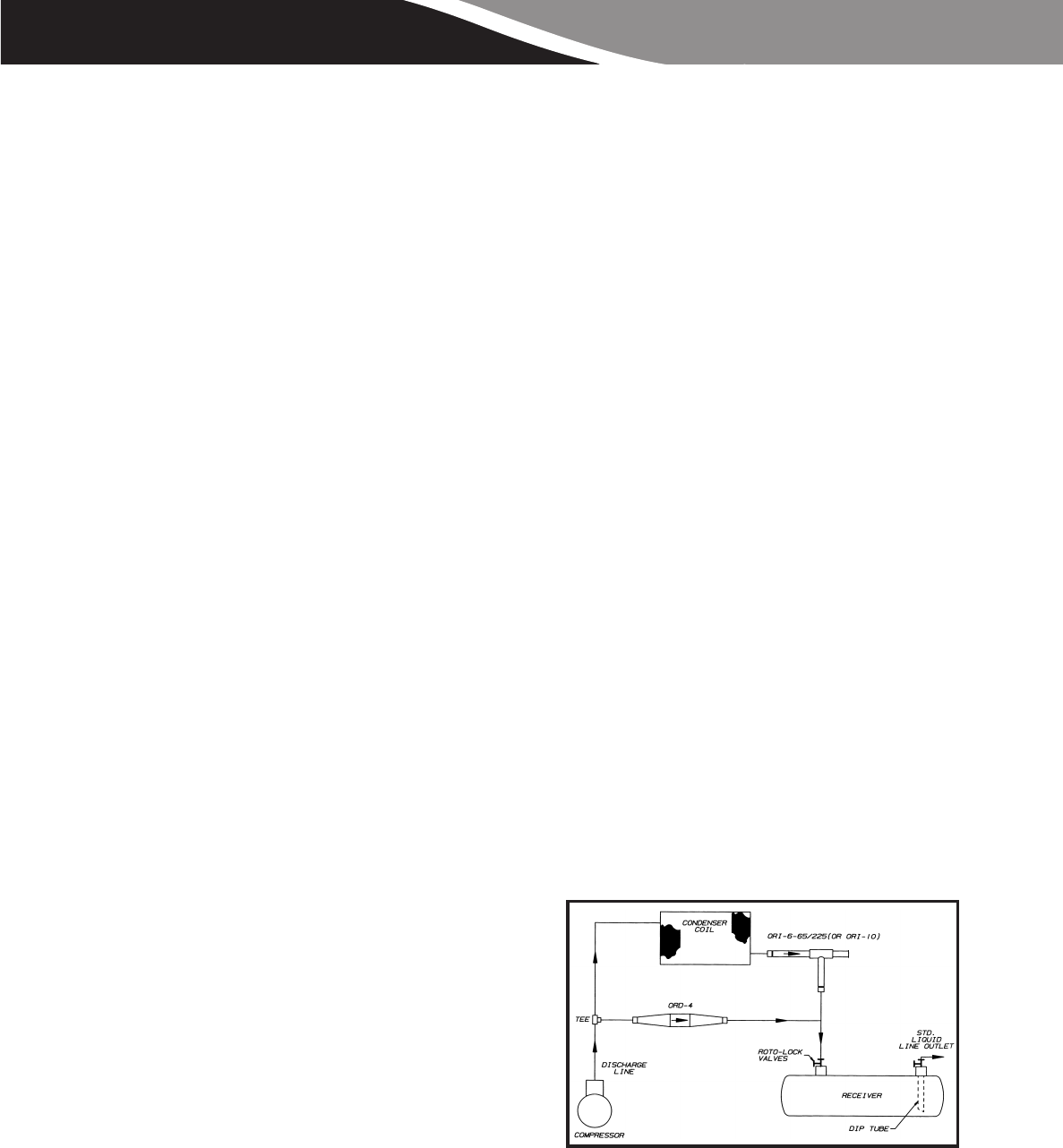
5
Refrigeration condensing units must efficiently
perform at varying ambient conditions. A properly
sized unit will adequately perform at even the
highest summer ambient temperatures. However,
in situations where the system must operate the
majority of the time at less than design temperature,
a means of providing adequate head pressure
for refrigerant ow is desirable. The CDV & CDD
units have an adjustable method of head pressure
control.
This system provides year round control of refrigerant
head pressure without the use of special refrigerant
expansion valves. As the ambient temperature falls,
the reciever pressure is allowed to fall to a minimum
of 75°F saturated condensing pressure. The reduced
discharge pressure at the compressor increases the
compressor capacity and lowers the input watts
from the compressor motor. The system also uses
the reduced ambient temperature to subcool the
liquid refrigerant in the condenser. This subcooled
liquid also increases system capacity. As a general
rule, every one degree of subcooling results in 0.50%
increase in system capacity. Together these result
in greater eciency, greater capacity, and reduced
run time.
Benets:
• Automatic year-round control of refrigerant head
pressure without the use of special expansion
valves.
• Energy savings in mild ambient conditions due
to reduced compressor discharge pressure and
refrigerant subcooling
• Provides easy restart during low ambient
conditions.
Operation
As the ambient temperature falls, the system
condensing pressure is also reduced. This pressure
is maintained by a regulator (ORI-6-65/225) at the
condenser drain. At approximately 75°F saturated
condensing pressure the regulator restricts the flow
of liquid refrigerant from the condenser causing the
condenser to flood. This condenser flooding allows
the liquid refrigerant in the condenser to become
subcooled by the ambient air flowing through the
condenser. As the regulator continues to flood the
condenser, a pressure differential will be established
between the receiver and the compressor discharge.
At a predescribed differential, a second valve (ORD-
4) will open and allow discharge gas from the
compressor to bypass the condenser and flow into
the top of the receiver. This gas is used to pressurize
the receiver. These valves are adjustable and the
minimum receiver pressure may be reset higher or
lower depending upon application situations of a
particular job.
Subcooled liquid is further enhanced by the routing
of liquid from the receiver liquid line outlet to the
condenser before leaving the condensing unit.
HEAD PRESSURE CONTROL



